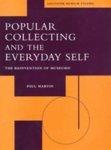
Book Summary
This work is an attempt to explore both the increase in and the breadth of popular collecting in Britain. It does this by examining the contexts of social change over the past 20 years. This change, it is argued, has led to a culture of social and material insecurity, in which collecting is used for the creating and defence of identity. The social theory of Guy Debord is employed as an underlying philosophy in which contemporary popular collecting is interpreted as an expression of a moral value system in a society driven by market forces. The social world and values of collectors are explored through their clubs. These, it is asserted, comprise an alternative society, one in which a legitimization of the collector's activities and preferences can be made and in which they develop a complementary reality. Private popular collecting is also compared with that of museums, finding both potential and need for a closer relationship. It is argued that as collectors develop in sophistication, museums can partially redefine themselves through them. There are a number of areas in which collectors and museums are increasingly overlapping. Museums, it is proposed, should take advantage of this by copying collectors in the wider community. Museums and collectors should converge to form a mutually beneficial knowledge-sharing forum, which can strengthen and deepen communal bonds, and act as an anchor on a changing and diversifying museum profession and in an increasingly individualistic society.
Book Details
| Book Name | Popular Collecting And The Everyday Self |
| Author | Paul Martin |
| Publisher | Continuum (Jul 1999) |
| ISBN | 9780718501709 |
| Pages | 360 |
| Language | English |
| Price | 5008 |








